Glaswegian-born but Edinburgh-based singer-songwriter Stephen McLaren has been a prolific presence on the Scottish indie music scene for over a decade. The former frontman with dream pop trio Collar Up, he turned solo in 2016 and released his debut album ‘We Used to Go Raving’ the following year. That album was recorded on a grand piano, but for his new second solo album, ‘They Don’t Put Any Money in Your Pocket’, which came out in the summer, McLaren employed synthesizers. McLaren cites New Order, who he is fanatical about, as a main influence. On the morning Pennyblackmusic meets him for a second interview with his fifteen months old toddler daughter Melina in tow, he is wearing a pair of boots with Peter Saville’s flowery cover for ‘Power, Corruption and Lies’ emblazoned across them. There is something of the seminal Mancurian outfit’s soaring rhythms in McLaren’s literate pop, but equally so there is an element of classic, old-school musicians like Burt Bacharach and Jimmy Webb in his strong songwriting sensibility and sublime sense of melody. Fiercely intelligent and thought-provoking, and railing against indifference and apathy, ‘They Don’t Put Any Money in Your Pocket’ tackles, with an often sly humour, issues such as Scottish independence, celebrity culture and Instagram. The interview begins in a coffee shop near the Leith Walk district of Edinburgh, but when the rather adorable Melina becomes restless we retire to his flat around the corner for an hour’s conversation. PB: Your last album ‘We Used to Go Raving’ was recorded on a grand piano. Why did you decide to record this one using synthesizers? SM: It was just a question of access really. The last time I was able to get access to a grand piano for a few days. I already had the songs written, so I knew what I was going to do. This time I was writing the songs as I was recording them, so it was some ways a more experimental record. I had a lot more control over this record. I initially just went with stuff that I was happy with and sounded good, and once I started to get things down I started to hear a lot of melody lines and chord sequences. It just evolved gradually. PB: It was recorded with a Creative Scotland grant. Those are few and far between. How did you manage to get that? SM: I was unsuccessful with the previous album. I also applied then, but I must have caught their attention at the time even though I was unsuccessful. It take so long to apply. It is quite a difficult process applying for a Creative Scotland grant. You have to fill in a form and the form takes forever (Laughs). I think that it took me about fifty hours. When I did get the news that I had been successful, I did have an interview with Jamie Houston, who is the Musical Officer there, and he said ‘We Used to Go Raving’ had caught their ears, so I already had a strong application before I did the form. I kind of wish that I had known that before I did the form (Laughs) because I tried quite hard with the application process. You have to justify them giving you public money. PB: So what has the money gone towards? SM: About half of it went to Jordan Yorkston, who is my video director, to make some videos. He is a fantastic talent. I don’t know anyone who does it better than him. He is really, really imaginative in what he does, and he is very professional and he cares about what he does. He cares about my music. He is very, very good at what he does, but he is also a fan of my music. The videos are excellent. He is a young filmmaker who should be more widely known than he is. PB: What was the rest of the money spent on? SM: There was a little bit of PR, and then the cost of manufacturing – the vinyl LPs and the CDs and mostly the vinyl. I bought a new laptop as well, a new Mac book. PB: It was produced by Chris Harvie. Who is he? SM: He is a good friend of mine and he is also the guitarist in Errant Boy (The other main act on McLaren’s label Errant Media). He produced the last Errant Boy album as well, and he did a good job on that. ‘We Used to Go Raving’ was just done by me. I still did a lot of ‘they Don’t Put Any Money in Your Pocket’ myself, but he did the vocals. All the instruments had been done at that point. The songs had been written and it had been largely done by me, but he took the vocals and also the whole mix and mixed it and compressed it properly. I found it good to have a second pair of ears, again with someone who was a fan of my music. The recording was done either at my house or his house. I think that it sounds better than the last one and that is largely down to Chris. He has managed to get my voice sounding better than I managed to get my voice sounding. I have got a lot to thank him for. PB: The title of the album ‘They Don’t Put Any Money in Your Pocket’ comes from a comment that your dad made to you after you watched a football match together. SM: That’s right. I have always loved football and from when I was about six or seven. I support Rangers. It is only the bigger games that you get excited about, and, when they played Celtic or a big European match or again if Scotland played a game. they generally would lose. I would get upset about it, and my dad would generally say. “Don’t worry about it! They don’t put any money in your pocket, son.” A child is not going to understand when an adult says something like that, but was quite a profound thing to say. It was also quite a bleak thing to say as well. There are some things which we can’t change and are almost inevitable, but at the same time we should change what we can PB: The main theme of this record seems to be fighting against indifference.... SM: Yeah, that is a good point. Fighting against indifference - Instagram, celebrity culture, people’s increasing lack of capacity to take anything in or to fight against things or to say what they think. PB: ‘Voting No’ touches upon that. You voted ‘Yes’ in the Scottish referendum of 2014, didn’t you?. SM: Yes, I did. I didn’t want to make the whole album about Independence, but I think that is still an issue in Scotland. It is the dominant topic in politics. It has been since the referendum. It can’t be resolved until it happens. People are going to keep voting SNP. There are problems with that as well. If one party has a total stranglehold over politics, I don’t think that is great for democracy. The SNP are going to be constantly voted in until there is independence. It has to go that way. I think that we should have voted for it in 2014. I think that it was a missed opportunity. PB: Why do you think then people voted ‘No’? SM: A lot of the people didn’t want their lives to change. They were quite happy with their lot. They were worried that things might become personally difficult for them or less advantageous than they were. People don’t like to change too much about their own existence. People will support charitable causes because they can feel good about themselves, but ask them to pay more taxes or change their income in order to drastically change things and they are not interested.. The ‘Yes’ campaign was really vocal , but at the end of the day people went to the ballet box and voted ‘No’ and in a lot of cases didn’t want others to know that they had voted ‘No’. PB: Why did you vote ‘Yes’? SM: I was always a supporter of Independence. I wasn’t someone who was convinced by the ‘Yes’ campaign. I had already voted for the SNP in elections right from since I was eighteen. I think that there is no way that a Labour government, or a Labour government, as we would accept them, not a Blairite government, but a proper Labour government, sort of what we might have seen under Jeremy Corbyn would ever be elected in England in our lifetimes again. It would either be a Tory government or maybe a soft Labour one. You can see the difference between Scottish and English politics now. It all comes down to the constitutional question. It all depends on whether you see England and Scotland as separate countries. I always have done. I think that is the mature thing to do, to run your own affairs, to do things yourself. We can’t continue to be dependent upon this political system of another country and also to complain about it. We need to run things ourselves. We have been doing that with the Scottish Parliament for the last twenty odd years. We need to take the next step now and do it completely. It is also more importantly a chance for a large percentage of people in this country to get better lives for themselves . PB: ‘Put Me on the Television’ takes a dark-humoured look at celebrity culture and the sort of people who spend a lot of time on Instagram and go on ‘Love Island’. SM: There are a lot of people who make a living out of posting ‘Content’ on Instagram. I hate that phrase ‘Content’. It really winds me up, but it is the phrase that is used. ‘Put Me On the Television’ is exactly what that song is about. It was me making a comment about that, and trying to be light-hearted but at the same time it is quite serious as well. Things like Instagram are quite damaging. They are damaging for musicians as well. I have an Instagram page. I put up videos of myself, maybe practicing or playing around with ideas. I am not sure, however, that people by and large are that interested because there is a certain culture of things which get likes on Instagram. Everything you do starts to become about engagement, about getting likes on Instagram or views on YouTube or plays on Spotify. As a musician you start to fight against the odds to get likes all the time. What you want to do is make some good music, some stuff that you like and that you hope other people will as well, but if you want to get played on Spotify your music has to sound like other things. That is the way the algorithm there works, and it is the same on Instagram. It absolutely crushes creativity and individuality. PB: Are you laughing at yourself in ‘No one Wants to Come to My Party’ about trying to create an audience? SM: I suppose that might be the sub text. It is more about getting people getting to care about social issues. For example, people buy from Amazon , rather than making a political point about it and buying from elsewhere they ignore it as they can get everything cheaper on Amazon, even though people who work for Amazon are treated disgracefully. Everyone knows that basically they get no time to go to the toilet, but people ignore that because it doesn’t suit them. It is just a comment about trying to get people to care about things more. PB: What do you hope to do to promote this record? SM: I want to play more gigs. That is the big ambition. I love doing gigs, and want to do a lot more. PB: Will there be a third album? SM: Yeah, there will be. It will take me a while to get back the energy to do it all over again, but I don’t think that I have said all that I have to say and I don’t think that i have given all that I have to give musically. I have already written some new songs which I will hopefully be playing live. PB: Thank you. Stephen McLaren will be playing live at the next Pennyblackmusic gig, which will also feature The Bathers and the black watch (acoustic solo) at The Wee Red Bar in Edinburgh on the 25th March.
Band Links:-
https://www.facebook.com/stephenmclarenmusichttps://twitter.com/mclarenallday
https://www.facebook.com/errantmediamusic
https://twitter.com/errantmedia
https://errantmedia.bandcamp.com/
Play in YouTube:-
Picture Gallery:-
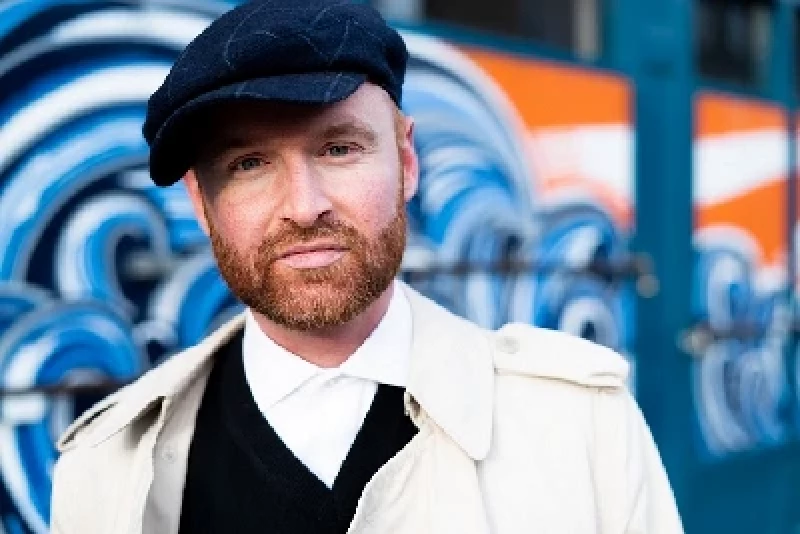
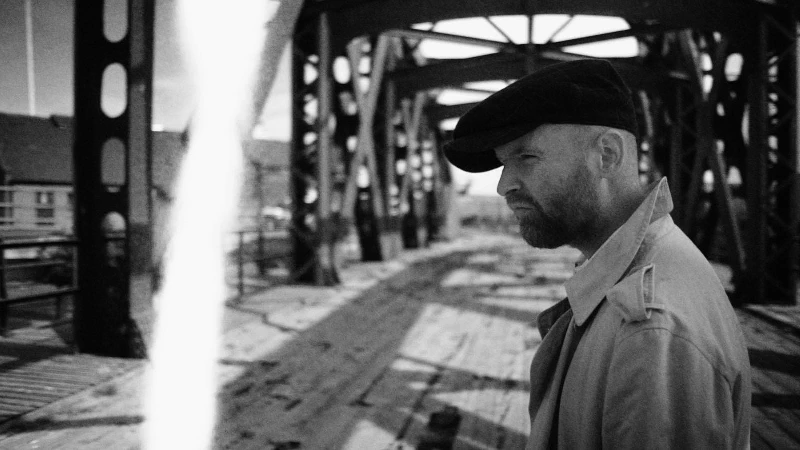
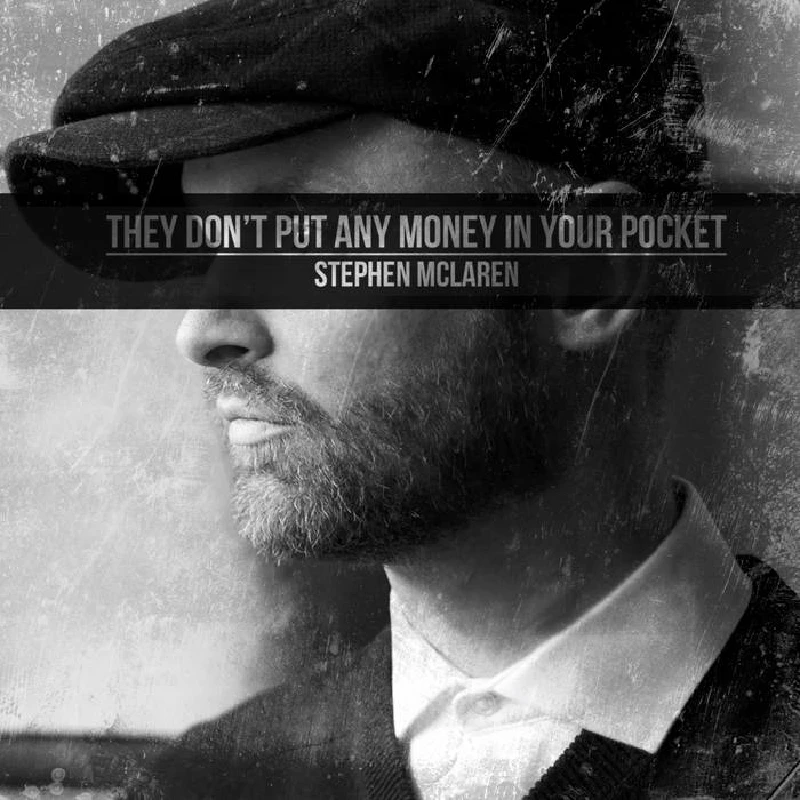
intro
Glaswegian-born but Edinburgh-based singer-songwriter Stephen McLaren talks to John Clarkson about his political and thought-demanding second solo album 'They Don't Put Any Money in Your Pocket'.
interviews |
|
Interview (2017) |
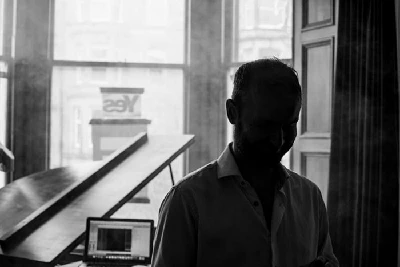
|
| Edinburgh-based singer-songwriter Stephen McLaren talks about his debut solo album, 'We Used to Go Raving', which was written and recorded on the piano. |
profiles |
|
'Put Me On The Television' Video Premiere (2021) |
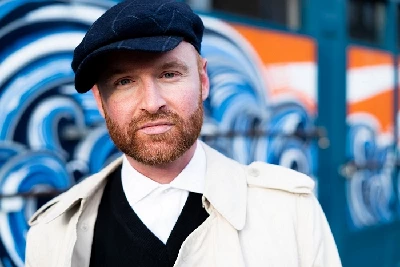
|
| Pennyblackmusic is proud to premiere the video for 'Put Me On The Television', the debut single from Edinburgh-based singer-songwriter Stephen McLaren's forthcoming dream-pop second album 'They Don’t Put Any Money in Your Pocket'. |
soundcloud
reviews |
|
We Used to Go Raving (2017) |
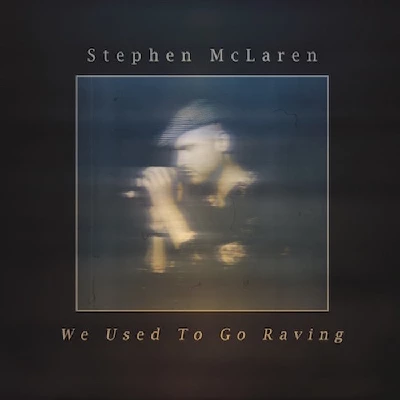
|
| Bleak but self-deprecating debut solo album by Edinburgh-based singer-songwriter and pianist/keyboardist Stephen McLaren |
most viewed articles
current edition
John McKay - InterviewRobert Forster - Interview
Cathode Ray - Interview
Spear Of Destiny - Interview
Fiona Hutchings - Interview
When Rivers Meet - Waterfront, Norwich, 29/5/2025
Carl Ewens - David Bowie 1964 to 1982 On Track: Every Album, Every Song
Chris Wade - Interview
Brian Wilson - Ten Songs That Made Me Love...
Shrag - Huw Stephens Session 08.12.10 and Marc Riley Session 21.03.12
previous editions
Heavenly - P.U.N.K. Girl EPBoomtown Rats - Ten Songs That Made Me Love....
Allan Clarke - Interview
Manic Street Preachers - (Gig of a Lifetime) Millennium Stadium, Cardiff, December 1999
Oasis - Oasis, Earl's Court, London, 1995
Barrie Barlow - Interview
Dwina Gibb - Interview
Beautiful South - Ten Songs That Made Me Love...
Pixies - Ten Songs That Made Me Love...
Sound - Interview with Bi Marshall Part 1
most viewed reviews
current edition
Peter Doolan - I Am a Tree Rooted to the Spot and a Snake Moves Around Me,in a CircleVinny Peculiar - Things Too Long Left Unsaid
Garbage - Let All That We Imagine Be The Light
Vultures - Liz Kershaw Session 16.06.88
John McKay - Sixes and #Sevens
Little Simz - Lotus
HAIM - I Quit
Morcheeba - Escape The Chaos
Eddie Chacon - Lay Low
Billy Nomates - Metalhorse
Pennyblackmusic Regular Contributors
Adrian Janes
Amanda J. Window
Andrew Twambley
Anthony Dhanendran
Benjamin Howarth
Cila Warncke
Daniel Cressey
Darren Aston
Dastardly
Dave Goodwin
Denzil Watson
Dominic B. Simpson
Eoghan Lyng
Fiona Hutchings
Harry Sherriff
Helen Tipping
Jamie Rowland
John Clarkson
Julie Cruickshank
Kimberly Bright
Lisa Torem
Maarten Schiethart